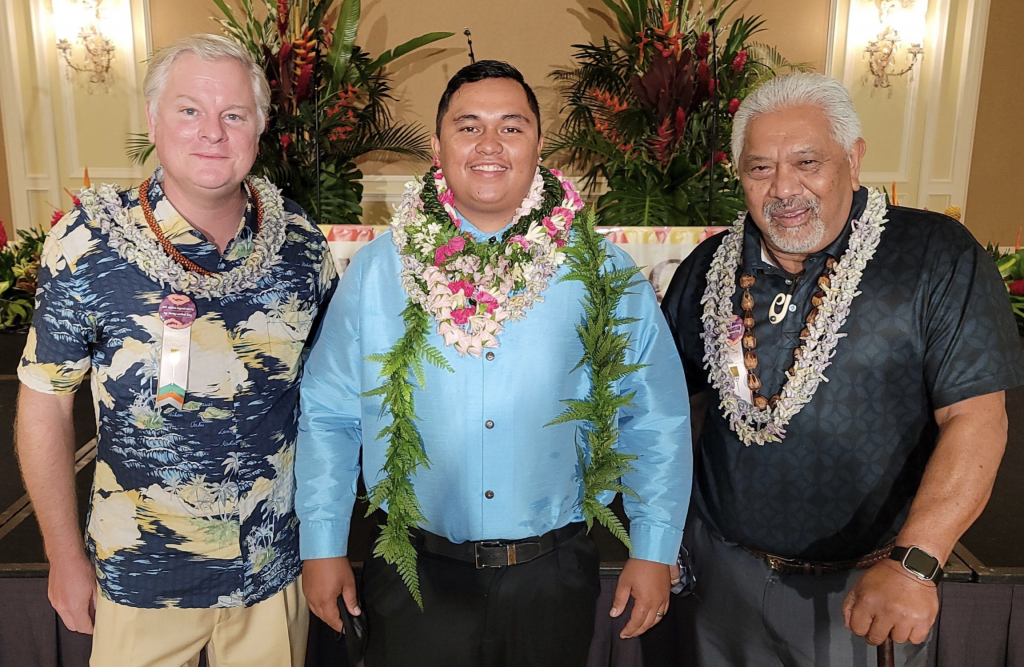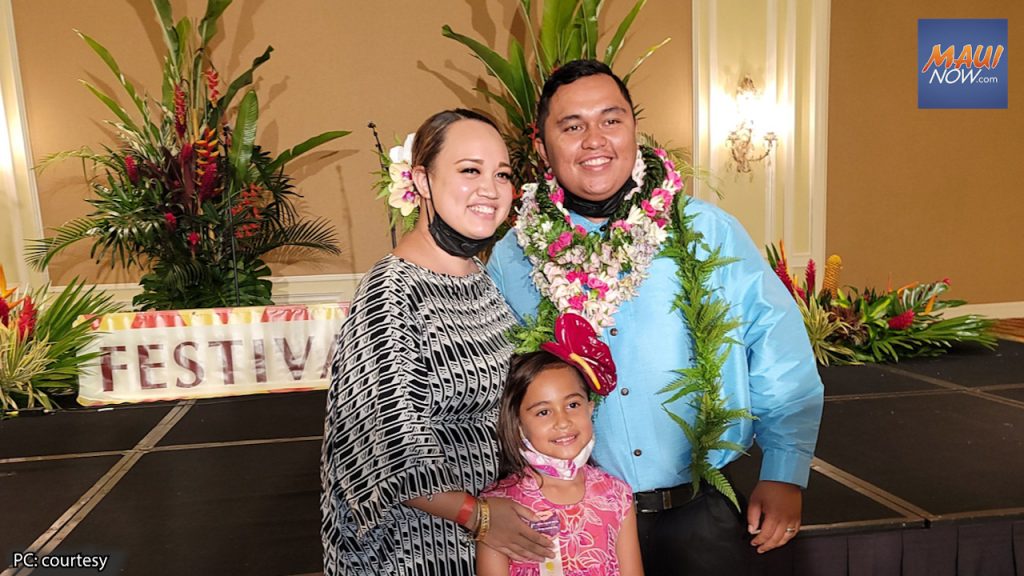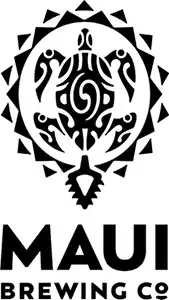Call for entries for the 2023 Richard Ho‘opi‘i Leo Kiʻekiʻe Falsetto Contest
The 21st annual Richard Ho‘opi‘i Leo Kiʻekiʻe Falsetto Contest is seeking contestants. The contest will be held at the Ritz-Carlton Maui, Kapalua Saturday, Sept. 23, 2023 at 6 p.m. Applicants may apply online at https://forms.gle/FUaN3VrHV5hrQJ8u6 or at festivalsofaloha.com by Sept. 8, 2023.
“Our legacy music project featuring our falsetto champions, ‘Hawaiian Falsetto Vol 1,’ won Hawaiian Engineering and Compilation of the Year at the Nā Hōkū Hanohano Awards last weekend,” said Daryl Fujiwara, Festival Director and Producer of the album. It was created to celebrate 20 years of the contest but it’s become so much more – a “calling card” for our talented champions, an incentive for future entrants and a mahalo to everyone that has kept this event alive.”
The top three places will receive cash awards and prizes. The champion will also take home a Kanileʻa ʻUkulele.
The purpose of this event is to provide a championship opportunity for amateur falsetto singers, as well as to provide a dynamic platform for the preservation and perpetuation of Hawaiʻi’s unique falsetto traditions. Additionally, it is designed to honor and uphold the cultural and entertainment ideals and integrity as modeled by the late Uncle Richard Hoʻopiʻi––Hawaiian falsetto legend, member of the renowned musical duo, The Hoʻopiʻi Brothers, a Nā Hōkū Hanohano Award winner, a Nā Hōkū Hanohano Lifetime Achievement Award co-recipient, a National Endowment of the Arts Folk Heritage Fellowship co-recipient, a Grammy Award co-recipient, and the founder of the Richard Hoʻopiʻi Leo Kiʻekiʻe Contest.
Contest Rules:
- Male Solo “Amateur” Contestant (has not been signed to a label or released a solo album; and has not already won or championed another falsetto contest).
- Contestants are highly encouraged to accompany themselves musically using their own instrument; especially ukulele or guitar. Contestants may use the back-up three (3) man band provided by Festivals of Aloha, or bring their own back-up musicians. A maximum of three back-up musicians is permitted. However, to acknowledge the increased difficulty of playing an instrument while singing, reliance solely on back-up musicians without self-accompaniment will result in the contestant receiving a score of 4/10. Accompanying oneself musically will result in a possible score of 6/10 through 10/10. Non-singing, non-speaking musical accompaniment only. Taped/CD/Media-File music is not permitted.
- No duplication of songs. The first to respond will reserve his selection for his performance.
- Applicants must be at least 18 years of age by September 23.
- Applicants must complete and return Contestant Application Form, Demo Recording by Sept 1.
- Contestant Song must be relevant to Hawai’i, must be performed in Hawaiian, and must be approved by the committee. Applicant’s demo recording must accompany application and feature the song listed on the Contestants Application Form. Because Hawaiian language – is a judged component, the song selected should consist of at least 90% Hawaiian language lyrics. Automatic point deductions for songs consisting of less than 90% Hawaiian language will be subject to suggestions of the Head Language Judge.
- Performance is limited to seven minutes, including interpretation, actual song and musical accompaniment.
- Song interpretation is mandatory and must precede the song.
- Contestant is responsible for any and all expenses arising from his participation in the contest. This includes, and is not limited to, travel expenses, costumes, back-up musicians, equipment and flowers.
- Aloha attire is recommended. Lei and other ethnic Hawaiian accessories are encouraged.
Judging Criteria:
Judging will be based on the following criteria. Judges will rank contestants in each category on a scale of 1 to 10 (10 being the highest score). Total points possible is 550.
- Vocals/Music – Vocal Quality (Balance, Intonation, Strength, etc.); Vocal Technique (Control, Ha‘i (up/down), Glissando, Vibrato, etc.); Vocal Aesthetics (Dynamics/Expression, Individuality, Phrasing, etc.); Musicianship (self-accompanied or not).
- Hawaiian language – Mele Background (Composer, mo‘olelo; mana‘o/inspiration; amount and accuracy of mo‘olelo Hawai‘i); Pronunciation/Enunciation (Articulation and command of the Hawaiian Language, Kahakō, ʻokina, phrasing, etc.); Technique (Ha‘i/grace note in appropriate places; comfort/ease in mo‘olelo delivery).
- Overall Presentation – Grooming; Stage presence, connection with audience; Posture; Communication (Accurate, Enlightening, Entertaining, etc.); Delivery; Emotion; Honorific of Hawaiian cultural values.
- Time penalty, one point per minute overtime deduction: A one-point deduction off contestant’s final score will be assessed for each minute that the contestant exceeds the five-minute time limit.
- Tie – The Head Judge will deliberate ties based on the difficulty/intricacy of the language and vocal techniques employed in the presentation of the tied mele, as well as the overall “polish” of the tied presentations.
Past contest winners are posted below:
- 2022 – Heua‘olu Sai-Dudiot, Hilo, Hawai‘i
- 2021 – Kamaehu Kawa‘a, Waiehu, Maui
- 2020 – COVID-19 / Canceled
- 2019 – Ikaika Mendez, ‘Ulupalakua, Maui
- 2018 – Kaulike Pescaia, Kīhei, Maui
- 2017 – Kason Gomes, Wailuku, Maui
- 2016 – Greg Juan, Wailuku, Maui
- 2015 – Kamalei Kawa‘a, Waiehu, Maui
- 2014 – Grant Kono, Honolulu, O’ahu
- 2013 – Micah Hoapili Ku‘aimoku De Aguiar, Kona, Hawai‘i
- 2012 – Joshua No‘eau Kalima, Hilo, Hawai‘i
- 2011 – Ezra Kaui Krueger, Maui, Hawai‘i
- 2010 – Po‘okela Wood, Maui, Hawai‘i
- 2009 – Pomaika‘i Krueger, Maui, Hawai‘i
- 2008 – Kamakani Kiaha, Moloka‘i, Hawai‘i
- 2007 – Kapono Na‘ili‘ili, O’ahu, Hawai‘i
- 2006 – Kalani Benanua, Lānaʻi, Hawai‘i
- 2005 – Hiroshi Okada, Japan
- 2004 – Kai Ho‘opi‘i – Maui, Hawai‘i
- 2003 – Kamaka Fernandez, Maui, Hawai‘i
- 2002 – Ramzey Ho‘opi‘i, Maui, Hawai‘i
2023 is officially the Year of the Kāhuli, proclaimed by Governor Josh Green on February 23 and has inspired this year’s theme – Kāhuli leo leʻa–Hoʻōla o ka wao. Sweet-voiced kāhuli–Savior of the forest.
There were once roughly 750 species of kāhuli, or Hawaiian land snails, across our islands and found nowhere else in the world. Our kāhuli are both ecologically important (as cleaners of fungus and bacteria from our native plants) and culturally important, as they are featured in Native Hawaiian mele, hula, oli, and lei. In the Year of the Kāhuli, we both celebrate these snails and recognize their plight: of those roughly 750 species, 60% have now been lost forever. Our remaining kāhuli face serious threats including invasive species predation, habitat loss, and climate change, and 100 or more species may go extinct in the next 10 years without additional action.
Festival Ribbons
2023 Festival Ribbons are now available. Proceeds generated from sale of our ribbons help to produce the events. Call or text 808-268-9285.
For the most up to date info visit festivalsofaloha.com and “like” us on Facebook.
Event organizers extended a special mahalo to the County of Maui – Office of Economic Development, Hawaiʻi Tourism Authority, Maui Visitors Bureau, Hāna-Maui Resort, Hāna Arts, Hāna Business, Ritz-Carlton Maui, Kapalua, Four Seasons Resort Maui at Wailea, Maui Health, Kanile‘a Ukulele, Lahaina Hawaiian Civic Club, Maui Disposal, Papa Ola Lokahi, Nā Pu‘uwai, Hui No Ke Ola Pono, Huihui Restaurant at the Kā‘anapali Beach Hotel, Keauhou Shopping Center and the Old Lahaina Lū‘au





















